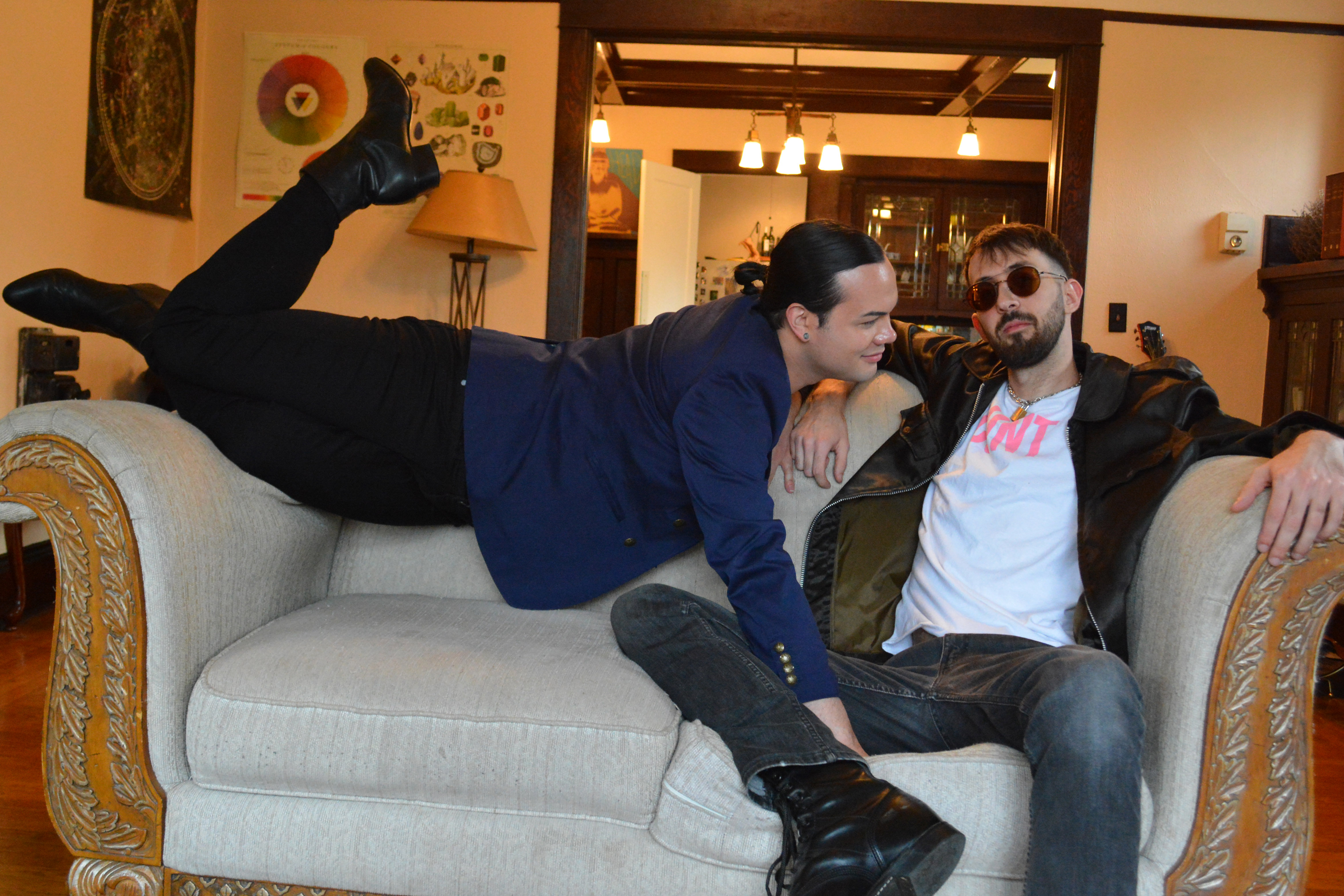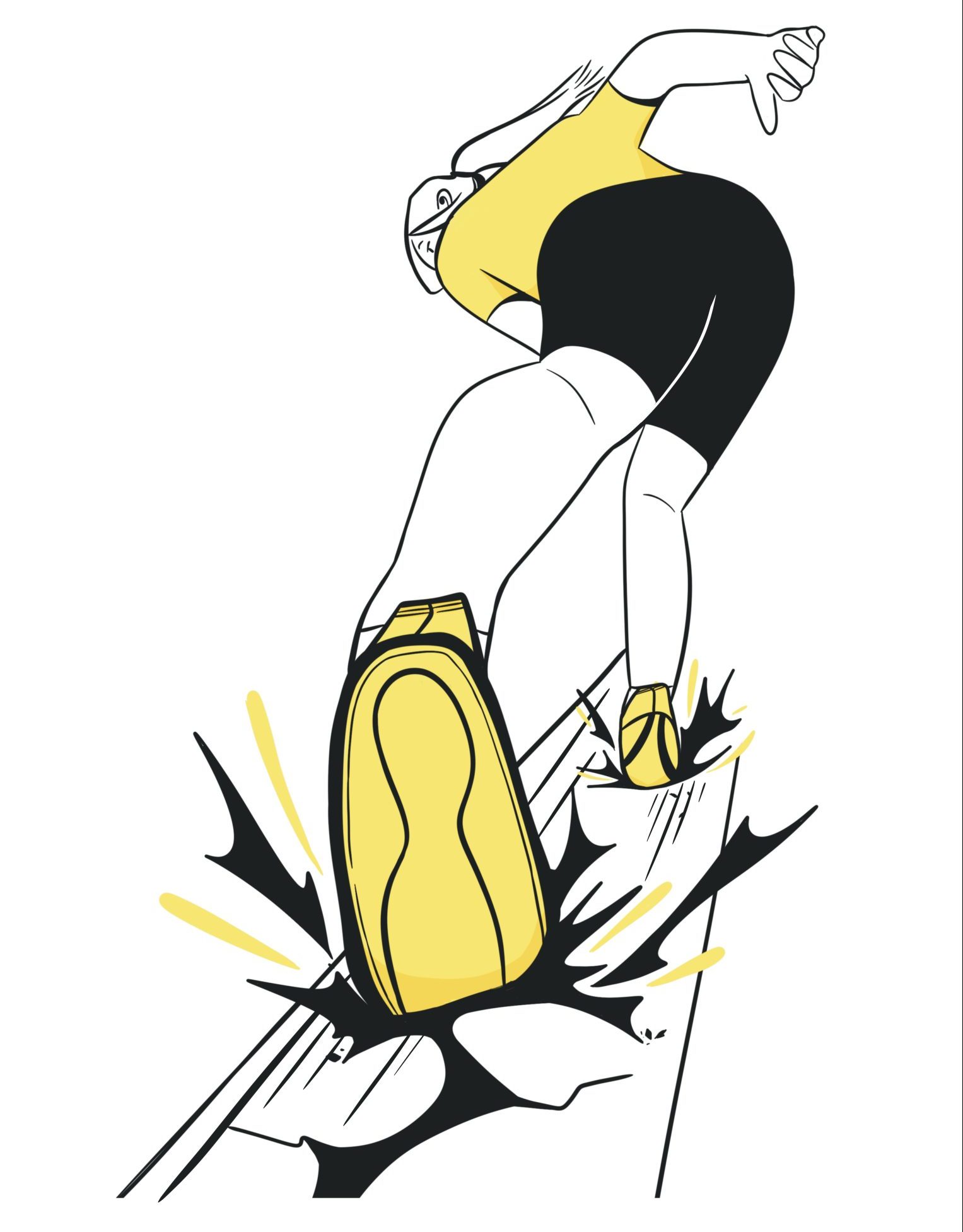With the prevalence of free and instant online pornography, overtly sexualized product advertisements and the ease of hookups (and yes, real, healthy relationships) from Tinder, Grindr and good ol’ Craigslist, it’s not surprising that something so pleasurable and stress-relieving as sex could become addictive.
If you care to look up sex addiction in the Diagnostic and Statistical Manual of Mental Disorders, you’ll see sex addiction is nowhere to be found. Aside from the fact that unsatisfactory research has been done on the subject, this may be because sex, intimacy and partnership can be defined in so many ways that a variety of experiences and treatment plans can describe the condition.
What is sex addiction?
Portland State University freshman Dara Mar said she’s heard of sex addiction, “But I never understood the difference between sex addiction and a healthy amount of sex.”
PSU senior Rachel Griffith said she has been introduced to the topic of sex addiction in some of her classes. “I have wondered why it’s classified as an addiction, given that sex is natural, normal, and it’s supposed to feel good,” Griffith said. “But I do recognize that people with this issue can lose control over their urges.”
What is a healthy amount of sex, and at what point does sexual behavior become a sex addiction? Julie Berman, a Portland-based licensed professional counselor, said clients come to her when the frequency of times they engage in sexual behavior or the kinds of sexual encounters they engage in causes a significant amount of stress in their day-to-day lives.
“When someone comes into my office and they say that their sex addiction is causing problems—whether it’s in a relationship or workplace, or significant enough with the stress, depression, and anxiety—we start to talk about sex addiction,” Berman said.
Berman said sometimes her clients have gotten in trouble with the law, sometimes there has been an episode in a relationship that leads to distrust, and sometimes her clients are so addicted to pornography that they find it challenging to have a “real-life relationship.”
Steven DeLugach, a Beaverton-based certified sexual addiction therapist, explains that although there are ten criteria for sex addiction he draws from in his practice, he focuses on helping his clients with their particular issues, regardless of what they want to call it.
“My job is to help my clients to define their problem behaviors in a way that helps them solve their problems,” DeLugach said. “I’m going to call it whatever my clients want to call it.” DeLugach added that sexual behavior can affect everyone’s life in different ways. “Sexual behavior becomes a problem when it interferes with your ability to show up emotionally and with the way you want to be present.”
How is sex addiction treated?
Like alcohol, gambling and eating disorders, sex addiction has its own network of 12-step programs throughout the nation. Sexaholics Anonymous, Sex Addicts Anonymous, and Sex and Love Addicts Anonymous all have meetings in the Portland metro area.
SAA offers meetings seven days a week in church meeting rooms and recovery centers all over Portland. All three organizations are self-funded and follow the organizational structure of Alcoholics Anonymous, with members sharing their experiences and struggles in a group setting and reading from organization literature.
Each organization also addresses addiction and recovery a bit differently, as can be seen on their website “about” tabs. SAA’s website states, “SAA is a fellowship of men and women who share their experience, strength, and hope with each other, that they may solve their common problem and help others to recover from their sexual addiction. The only requirement for membership is the desire to stop addictive sexual behavior.”
Aside from counseling, a 12-step support group is a unique benefit to have. “The beauty of calling sex addiction an addiction is all the 12-step programs that are out there,” DeLugach said. “Intact, readily available, 24 hours a day, for free, where your support comes from people struggling on a daily basis.”
When asked how she might advise a friend experiencing self-destructive sexual behaviors, Griffith answered, “I would suggest researching a sex therapist or couples counselor and interview them over the phone to see if they would be a good fit.”
While 12-step programs may be exactly what some suffering individuals or partners need, Berman said a goal like SA’s “desire to stop lusting and become sexually sober” might be unrealistic for couples that need to find a new, healthy intimacy in their relationship.
“An old model used to be just not to address that or talk about that and just abstain and not have a sexual life,” Berman said. “But that’s not really addressing the whole problem or treating the individual as a whole human being—it’s unrealistic.”
Is sexual and intimacy health important only for those with addictions?
The silver lining to sex addiction may be that any of us, self-described addict or not, can work on our emotional and sexual health. Berman says that when couples come to her for counseling, she helps them with their emotional health before working on a healthy sex plan.
For those who might feel dismayed at the thought of having a sex addiction, DeLugach said not all hope is lost. “Everybody has issues about sex or money,” DeLugach said. “Everybody can be more loving or kind or inclusive with themselves or their partners. We all fall on a continuum. Sex addiction is not necessarily an ongoing plan of behavior.”
For more information on sex addiction or to seek help for themselves or someone close to them, students can request a counseling session at the Center for Student Health and Counseling or visit saportlandmetro.org, portlandsaa.org or slaa-portland.org.






